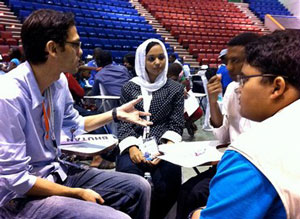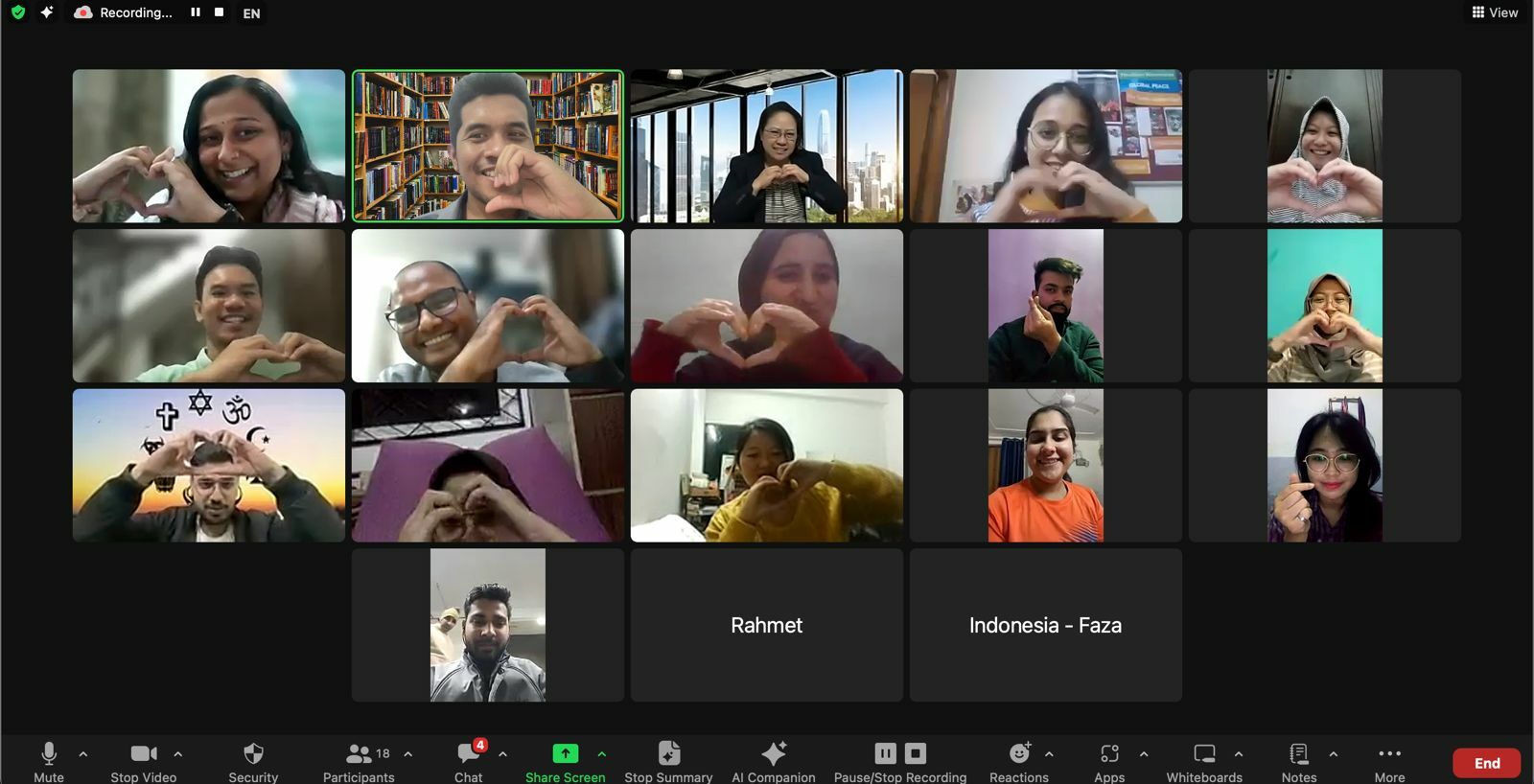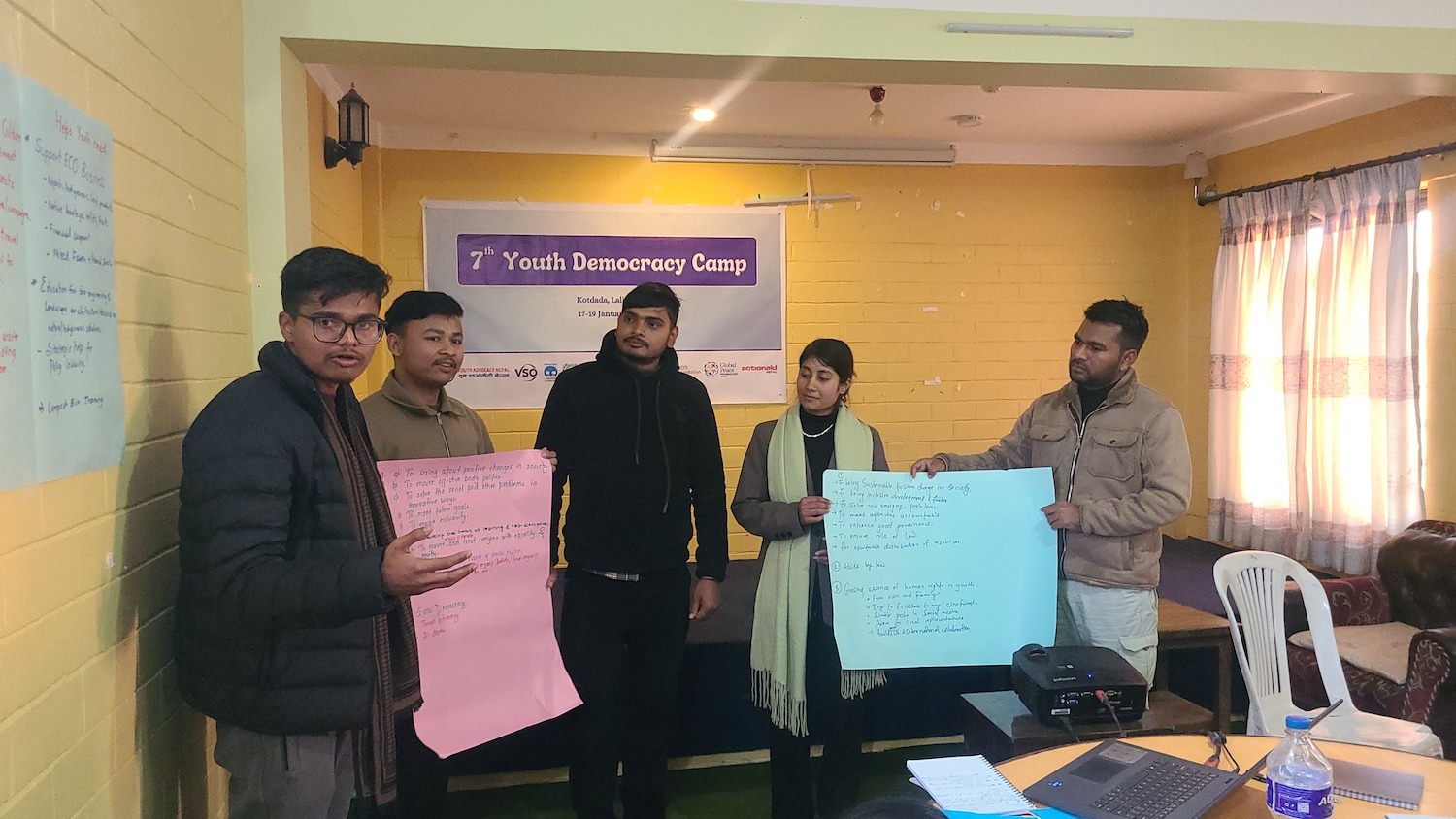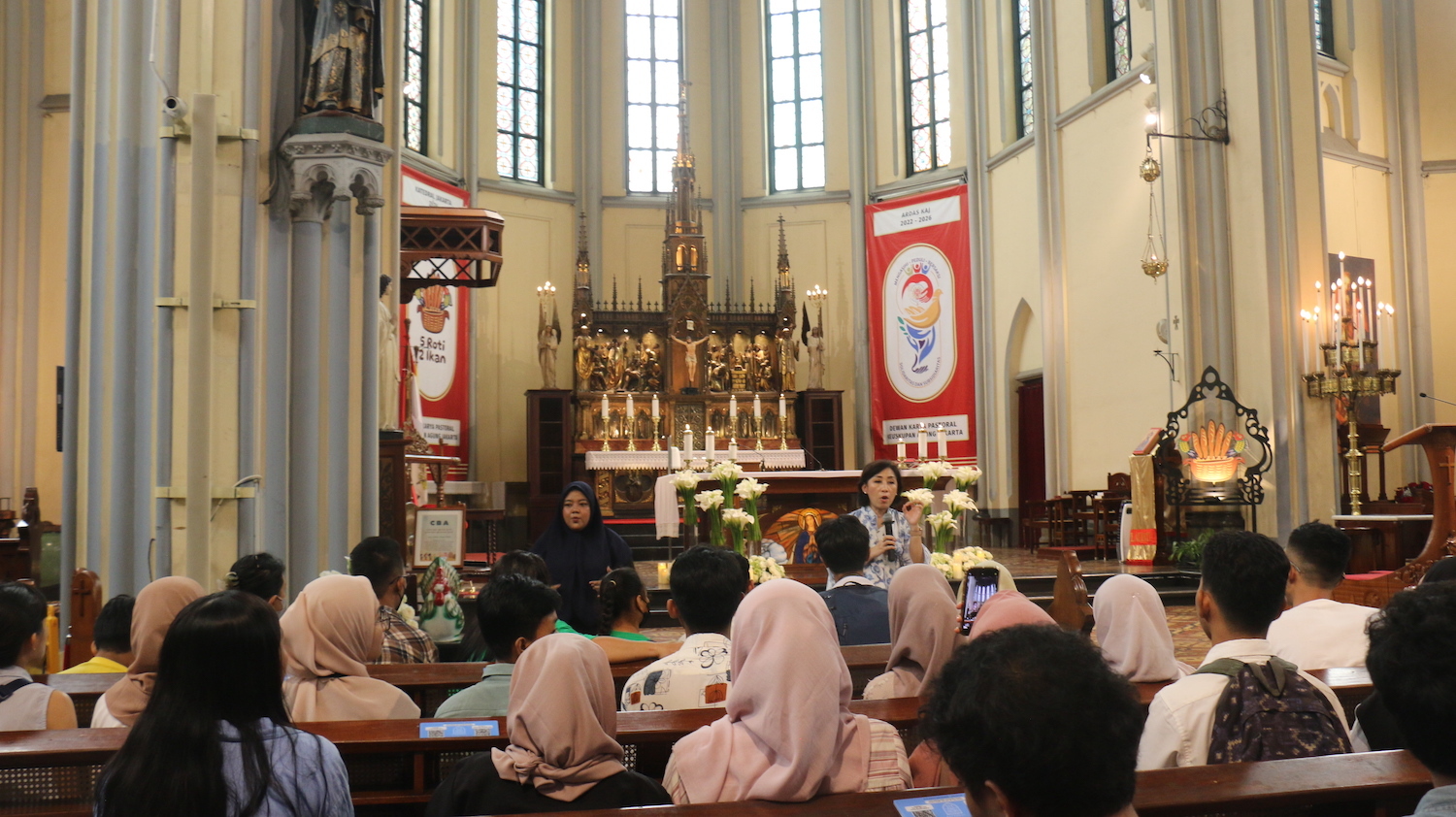
Kenyan student Eunice Njung’e with a delegate at the Tunza Conference in Bandung, Indonesia.
The United Nations Environmental Programme (UNEP) selected Nairobi secondary student Eunice Njung’e to attend the Tunza International Children and Youth Conference in Bandung, Indonesia. Ms. Njung’e is a student at Lady of Fatima Secondary School, one of GPF Kenya’s lead pilot schools for its Character Competencies curricula.
GPF Kenya partners with UNEP on youth and environmental projects in Kenya, and the UN agency works globally on issues relating to energy, the environment, education, and disaster relief. Our Lady of Fatima Secondary School was recognized as the2010/ 2011 “Best Day School” in the Nairobi County.
The September 27-October 1, 2011 conference was organized by the government of Indonesia and UNEP, and sought youth input to the upcoming United Nations Conference on Sustainable Development (RIO +20), which will be held in Rio de Janerio, Brazil in June 2012.
Ms. Njung’e was selected based on criteria of discipline, academic performance, leadership qualities, participation in extra-curricular activities and mentorship capability. The selection was initially made by teachers, then reviewed by the Character Competencies committee and approved by the school principal.
Tunza is a Swahili word, the common language of most of East African countries, which means to “treat with care and affection.” Some 1200 youth from more than 100 countries attended the conference on the theme “Reshaping Our Future through a Green Economy and Sustainable Lifestyles.”

Youth delegates discuss the drafting of the Bandung Declaration.
The conference also reviewed the contribution of the youth to the United Nations International Year of Forests 2011 and explored how young people can encourage their peers to adopt more environment friendly lifestyles.
One of the main outcomes of the conference was the Bandung Declaration, a global youth statement on sustainable development in the run up to RIO +20. The Declaration noted that in the next ten years, as the world’s population passes seven billion, “we need to provide jobs for more than 1 billion young people—employment that will both enable them to live productive and worthwhile lives and to contribute to the transition to a just Green Economy…The trends and science tell us that we cannot wait another generation before we act—the Green Economy is our only future.”
Ms. Njung’e said she learned the importance of maintaining our environment. “We have the power to change the world through the little impacts that we make,” she said. She also urged all Kenyans to maintain the environment for the benefit of the next generation and hoped her school would encourage every student to plant a tree and care for it.



